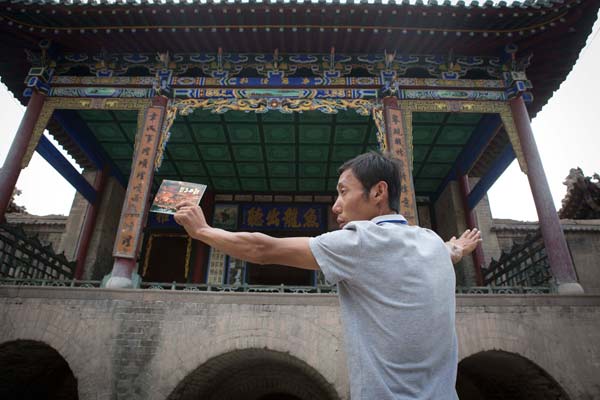Trade town turns to tourism
|
 |
|
Qikou's fledging tourism industry offers new job opportunities for local residents like Li Xiaobing. Kuang Linhua / China Daily |
The town flourished during the Ming (1368-1644) and Qing (1644-1911) dynasties, as most goods transported using the waterway, had to be transferred onto land, indirectly bringing large numbers of visitors to the town.
It remained a trade center until the 1940s, connecting business from Shanxi, Shaanxi and Inner Mongolia.
Today, the town has lost its former glory, with modern transportation long ago replacing traditional shipping.
Because the town sits along the Yellow River, it is not a good place for plantation.
Since the 1980s, the majority of the young people left Qikou for larger cities to look for work.
Li Xiaobing, a 32-year-old local resident, says many former residents are now migrant workers.
The local government has developed tourism since 1998, aiming to turn the town into a tourist attraction with its long history and the scenic Yellow River. But it was not until 2010 that tourists started visiting.
Many young people have returned to Qikou to work as tour guides.
Li returned in 2009 from Zhe-jiang province where he had worked in a factory for five years.
"Business was gloomy at first," he recalls. On most days, he spent one day showing the main streets and attractions to visitors for 30 yuan ($5).
From 1998 to 2004, most visitors to Qikou were photographers and painters who came for art. It was only after 2008 that many self-driving travelers visited the town.





















